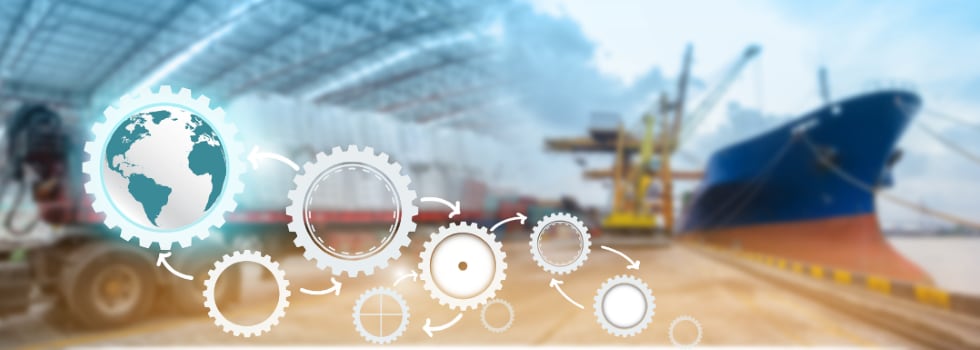Recent incidences of supply shortages, food safety data manipulation, and misleading practices have underscored the need for robust systems that ensure food safety and traceability in the food industry.
In an era of complex supply chains and evolving consumer expectations, digital solutions have emerged as invaluable tools for enhancing transparency, efficiency and accountability. Food safety and traceability in safeguarding consumers and maintaining trust within the industry is critical. Digital solutions play an imperative role, supporting the industry addressing these challenges and providing a comprehensive framework for ensuring food safety and traceability.
The importance of food safety and traceability

Food safety and traceability are non-negotiable aspects of the food industry, playing a crucial role in protecting consumer health and fostering trust. Supply shortages have been well documented in the news of late and the fear is that these shortages have the potential to increase the risk of food fraud and compromise the safety of products. Instances of food safety date manipulation and misleading practices further emphasise the need for robust systems that can identify and rectify such issues promptly. Consumers rightfully expect safe, high-quality products, and the food industry must strive to meet and exceed these expectations.
Challenges in ensuring food safety and traceability
The modern food industry faces several challenges in maintaining optimal food safety and traceability:
1. Supply chain complexity: The global nature of supply chains, with numerous intermediaries and geographical distances involved, makes it challenging to track the journey of ingredients and finished products accurately. Lack of transparency and communication across the supply chain can lead to delays in identifying the source of contamination during a food safety crisis.
2. Data fragmentation: Essential information related to food safety and traceability is often scattered across disparate single-use portals and paper-based records. This fragmentation hampers the ability to swiftly access and analyse data, hindering effective traceability efforts.
3. Manual processes and human error: Reliance on manual processes increases the risk of human error, potentially compromising the accuracy and efficiency of traceability systems. Manual data entry, record-keeping, and communication can lead to delays and inconsistencies, impeding swift responses to safety concerns.
Leveraging digital solutions for enhanced food safety and traceability
Digital solutions have emerged as powerful tools for addressing the challenges faced by the food industry, enabling companies to strengthen food safety and traceability:
1. Digitised data management: By adopting digital solutions, companies can centralise and digitise critical food safety and traceability data. Digital platforms provide a unified repository that allows for efficient data collection, storage, and retrieval, reducing the risk of errors and ensuring data accuracy.
2. Supply chain visibility and transparency: Digital solutions provide end-to-end visibility into the supply chain, enabling real-time tracking of ingredients, raw materials and finished products. This transparency facilitates prompt identification of potential issues, allowing companies to take proactive measures to mitigate risks.
3. Automated processes: Digital solutions automate manual processes, reducing the reliance on paper-based records and minimising the potential for human error. Automation streamlines data entry, record-keeping, and communication, ensuring faster response times and improved accuracy in traceability efforts.
Integrating ESG practices for sustainable and responsible food operations

The integration of environmental, social and corporate governance (ESG) practices is accelerating the trend towards digitisation as consumers increasingly prioritise sustainability, ethical sourcing, and social responsibility. EU supply chain laws are currently being discussed in parliament, signalling a new era of corporate responsibility and sustainability. The EU Supply Chain Law introduces a pivotal shift in the food and beverage industry, demanding greater accountability for human rights and environmental impacts throughout the supply chain. Food and beverage brands will be required to conduct due diligence, trace the origin of ingredients, and address potential risks associated with their suppliers and subcontractors. Non-compliance could result in severe consequences, including reputational damage, legal liabilities, and financial penalties.
Companies need to align their food safety and traceability efforts with robust ESG practices to meet consumer expectations and create a positive impact on society and the environment. By leveraging digital solutions, food and beverage brands can integrate ESG considerations into their operations. These solutions provide tools for monitoring and reporting key ESG metrics, such as carbon emissions, and supplier compliance. With greater visibility and accurate data management, companies can identify areas for improvement and make informed decisions to enhance their ESG performance. By incorporating ESG practices into their food safety and traceability initiatives, brands can demonstrate their commitment to sustainability, build consumer trust, and contribute to a more responsible and resilient food industry.
TraceGains is advancing food safety and traceability with a networked solution
TraceGains stands at the forefront of enhancing food safety and traceability in the food industry. With its comprehensive network, TraceGains enables the industry to connect, standardise and automate, empowering companies with:
1. Centralised data management: TraceGains enables companies to standardise and centralise critical food safety and traceability data, eliminating the need for fragmented single-use portals and manual processes. The platform provides a unified digital repository, ensuring data accessibility, accuracy, and integrity.
2. Supply chain collaboration: TraceGains facilitates effective collaboration among stakeholders within the supply chain, streamlining the exchange of critical information, certifications and audit reports. This collaboration ensures transparency, traceability, and accountability at every step of the supply chain.
3. Advanced analytics and insights: The platform's advanced analytics capabilities allow companies to extract valuable insights from their food safety and traceability data. By leveraging data-driven analytics, companies can proactively identify trends, potential risks, and areas for improvement, enabling informed decision-making and targeted actions.
4. ESG performance monitoring: TraceGains’ advanced analytics capabilities allow companies to measure, monitor and report on key ESG metrics. By tracking sustainability indicators, such as carbon emissions and supplier compliance, companies can identify areas for improvement and make informed decisions to enhance their ESG performance. Supplier transparency facilitates the identification of sustainable and ethical sourcing practices, ensuring compliance with ESG standards throughout the supply chain.
In an era where food safety and traceability are of utmost importance, digital solutions have become indispensable for the food industry. By addressing the challenges of supply chain complexity, data fragmentation and manual processes, digital solutions like TraceGains empower companies to enhance food safety and traceability. As the industry evolves, TraceGains remains committed to providing innovative solutions that safeguard consumers, ensure transparency, and foster trust in the food supply chain.
To find out more about the TraceGains Networked Ingredients Marketplace, contact Dan McGlynn on +44 (0)113 868 1212 or dan.mcglynn@tracegains.com or visit tracegains.com.






